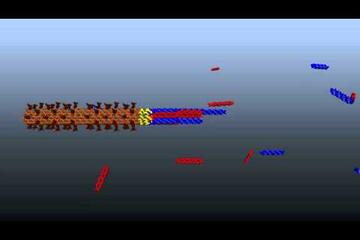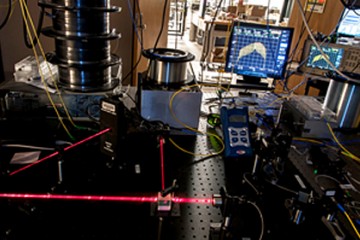Rebecca Schulman, assistant professor of chemical and biomolecular engineering and computer science at Johns Hopkins University, has received a National Science Foundation CAREER Award, which recognizes the highest level of excellence and promise in early-stage scholars.
Schulman, who joined JHU's Whiting School of Engineering in 2011, is looking at the challenge of using DNA as a material to help connect nanostructures. The five-year grant will support her lab's development of a new method for assembling interconnects between nanoscale device terminals.
"Building nanoscale devices with input and output terminals is not easy," Schulman says. "But it is easier than taking these devices and connecting them together."
Her project, DNA-Templated Assembly of Nanoscale Circuit Interconnects, focuses on the challenge of building circuits from nanoscale devices. To date, Schulman says, a limiting factor has been the need to place wires that connect these devices with nanometer precision.
"Suppose we have two tiny structures that we want to wire together," she says. "How do we build a wire that connects them? The strategy that I propose is to chemically label these structures and then self-assemble something that grows between them. We call them self-guided wires."
The work holds promise for developing nanoscale circuits that could pave the way for faster computers, devices to manipulate light at the nanoscale, and extremely sensitive molecular detection systems.
Posted in Science+Technology
Tagged chemical engineering, biomolecular engineering, computer science









